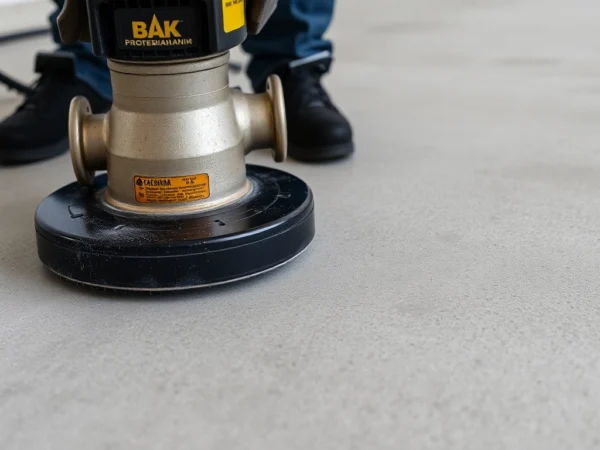How to Choose a Reliable Contractor for Your Construction Project
Understanding the Role of a Contractor in Construction
In the complex world of construction and building projects, the term contractor holds significant weight. Whether you’re planning a home renovation, commercial development, or large-scale infrastructure project, understanding what a contractor does, the different types, and how to select the right professional for your needs is essential for a successful outcome. This comprehensive guide aims to shed light on the multifaceted role of contractors, providing valuable insights, practical tips, and detailed strategies to help property owners, project managers, and prospective contractors navigate the construction landscape confidently.
Defining the Responsibilities of a Contractor
A contractor is fundamentally a business or individual that performs work on a contractual basis, taking responsibility for the execution, management, and completion of a construction project. The core responsibility revolves around turning the project owner’s vision into reality within scope, time, and budget constraints. This involves numerous duties, including project planning, resource management, compliance with safety and building codes, and quality control.
More specifically, contractors are tasked with coordinating various tradespeople—such as electricians, plumbers, carpenters, and masons—to ensure their work aligns seamlessly with the project design and specifications. They oversee daily operations on-site, make critical decisions to resolve unexpected issues, and maintain accountability for the project’s progress.
It’s noteworthy that, according to the Merriam-Webster dictionary, a contractor “contracts to perform work or provide supplies,” emphasizing their role hinges on contractual obligations to deliver specific results. For example, a general contractor might be responsible for the overall project, while subcontractors handle specialized tasks.
Effective project management by a contractor can significantly influence the project’s success, affecting everything from timeline adherence to cost efficiency and quality standards.
Types of Contractors: General, Subcontractors, and Independent
General Contractors
The most prominent type of contractor, a general contractor (GC), bears overall responsibility for managing the entire construction process. They coordinate all phases—from procurement and scheduling to on-site supervision and compliance oversight. General contractors usually sign the main contract with the property owner and may hire subcontractors for specialized work segments.
A reputable general contractor ensures that each component of the project aligns with the original plans and that timelines are met. They also handle permitting, inspections, labor management, and safety protocols. The success of a project heavily depends on the GC’s expertise, leadership, and ability to solve unforeseen problems promptly.
Subcontractors
Subcontractors are specialized contractors hired by the general contractor to perform specific tasks within the scope of the project. Common subcontractor roles include electrical, plumbing, roofing, HVAC, drywall, and landscaping. Their expertise ensures each phase of construction adheres to technical standards and building codes.
Subcontractors operate under their contracts with the general contractor but are crucial to the project’s overall quality and timeliness. Their skill level, reliability, and communication are vital factors in avoiding delays and cost overruns.
Independent Contractors
An independent contractor often works on a freelance or self-employed basis, handling individual tasks or smaller projects. They typically have their own business and clients. In construction, independent contractors may specialize in a single trade or service, such as carpentry or painting. It’s essential for property owners to verify their licensing, insurance, and reputation before hiring independent contractors to avoid liabilities and ensure quality.
Differentiating between a contractor and an employee is crucial here; independent contractors have greater autonomy over their work methods and are responsible for their taxes and insurance.
Benefits of Hiring a Licensed Contractor
Engaging a licensed contractor offers numerous advantages that mitigate risks and ensure compliance with regulatory standards. Licensed contractors have fulfilled specific requirements, including passing exams, demonstrating experience, and maintaining ongoing education. Their licensing process verifies their competence, adherence to safety standards, and ethical business practices.
Additionally, licensing often requires proof of adequate insurance coverage, protecting clients from liabilities related to accidents, damage, or lawsuits. An insured contractor guarantees that any unforeseen incidents will be managed responsibly without financial strain on the property owner.
Licenses are also essential for legal and contractual reasons. They enable property owners to enforce warranties and guarantee work quality. For example, the City of Philadelphia provides a clear pathway for obtaining contractor licenses, ensuring that licensed professionals meet local standards.
Opting for unlicensed contractors can result in delays, added costs, and legal complications. The presence of a license acts as a mark of credibility, professionalism, and responsibility.
Key Factors to Consider When Hiring a Contractor
Experience and Portfolio Review
Experience is perhaps the most significant predictor of project success. Review the contractor’s portfolio to understand the scope of their previous projects—residential, commercial, or specialized structures. An experienced contractor will have a track record of overcoming common challenges and delivering projects on time.
Request references and visit previous sites if possible. Speaking directly with past clients can reveal insights into the contractor’s professionalism, work quality, adherence to deadlines, and communication skills.
Licensing, Insurance, and Certifications
Verify that the contractor holds valid licensing applicable to your project’s scope and location. Confirm they carry sufficient insurance, including general liability and workers’ compensation, to protect both parties from potential damages or injuries.
Certifications from industry organizations (such as the National Association of Home Builders or OSHA safety certifications) can also reflect professional standards and ongoing training commitment.
Transparent Pricing and Clear Contracts
Price quotes should be detailed, itemized, and transparent. Avoid contractors who provide vague estimates, as this can lead to unexpected costs later. A comprehensive contract should specify project scope, timelines, payment schedules, change-order procedures, and dispute resolution methods. Clear documentation minimizes misunderstandings and provides legal protection.
Always read and understand the contract fully before signing, and don’t hesitate to negotiate terms that better suit your needs.
Steps to Find the Right Contractor Near You
Local Search Tips and Resources
Finding a reliable contractor begins with targeted local searches. Use online directories, review platforms like Google Reviews, and industry-specific websites such as Contractor Connection. Visiting local trade associations and chambers of commerce can also yield trusted referrals.
For example, using location-specific searches such as “Contractor near me” can streamline your options, but always cross-reference reviews, credentials, and previous work examples for due diligence.
Questions to Ask During Interviews
Prepare a list of critical questions to assess the contractor’s suitability:
- Can you provide references from recent clients?
- Are you licensed and insured for this type of work?
- What is your project timeline, and how do you handle delays?
- Can you explain your payment structure?
- How do you manage subcontractors and coordinate work phases?
Asking detailed questions facilitates understanding of their process, professionalism, and compatibility with your project needs.
Checking References and Past Projects
Always verify references by speaking with previous clients. Visit completed projects if possible, and assess workmanship quality, adherence to deadlines, and responsiveness. Are the sites clean and safe? Do the owners express satisfaction? These insights help prevent future mismatches.
Best Practices for Managing Your Contractor Relationship
Effective Communication and Expectations
Clear, ongoing communication is crucial throughout the project. Establish expectations early—discuss project scope, milestones, and decision-making processes. Use written documentation to record agreements, changes, and concerns.
Schedule regular check-ins to review progress and address issues swiftly. Maintain a professional tone and foster mutual respect to ensure collaboration.
Monitoring Progress and Quality Control
Keep a close eye on daily activities and regularly inspect work quality. Document progress with photos and notes. Consider hiring a third-party inspector or project manager if the scope is extensive.
Verify that work complies with plans, specifications, and safety standards. Address deviations immediately to prevent costly corrections later.
Handling Disputes and Contract Adjustments
Disagreements may arise; handle them through open dialogue and via the contract’s dispute resolution clause. If changes are necessary, document amendments formally and agree on costs and timelines before work proceeds.
Approach conflicts professionally, aiming for mutually acceptable solutions to maintain project momentum and relationship integrity.
Measuring the Success of Your Contractor Engagement
Evaluating Project Completion and Satisfaction
Upon project completion, assess whether all aspects meet contractual requirements, quality standards, and your initial expectations. Conduct thorough inspections, request warranties, and ensure all documentation is complete.
Satisfaction should be based on timely completion, adherence to budget, and craftsmanship quality.
Long-term Maintenance and Follow-up
Successful projects often require ongoing maintenance. Establish a relationship with your contractor for future repairs or upgrades. Proper follow-up ensures longevity and continued satisfaction.
Building Ongoing Partnerships for Future Projects
A trusted contractor becomes a valuable partner for future endeavors. Maintaining a positive relationship through prompt payments, referrals, and feedback can foster loyalty and better service.
Long-term partnerships can also lead to improved project efficiency and prioritized scheduling.










